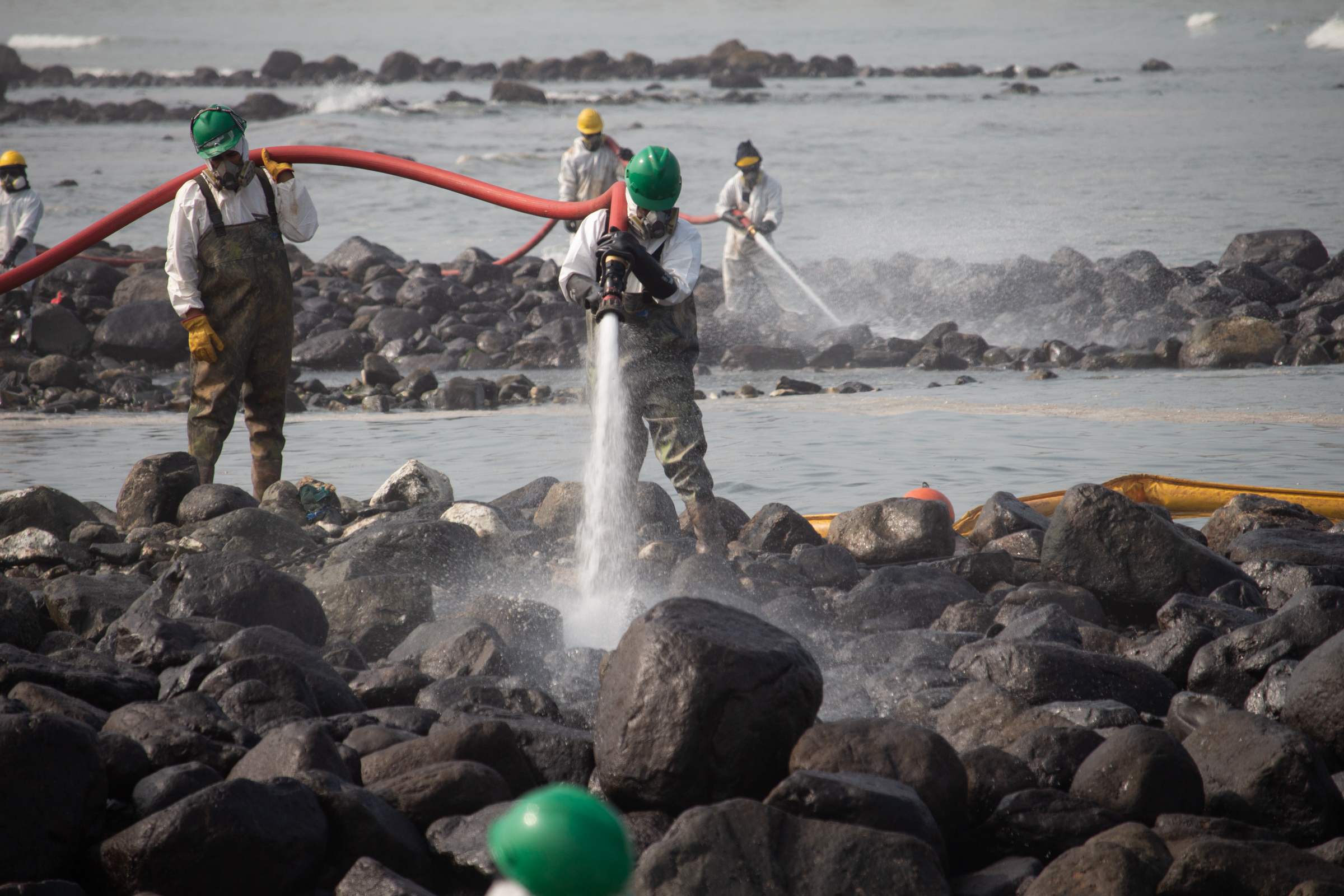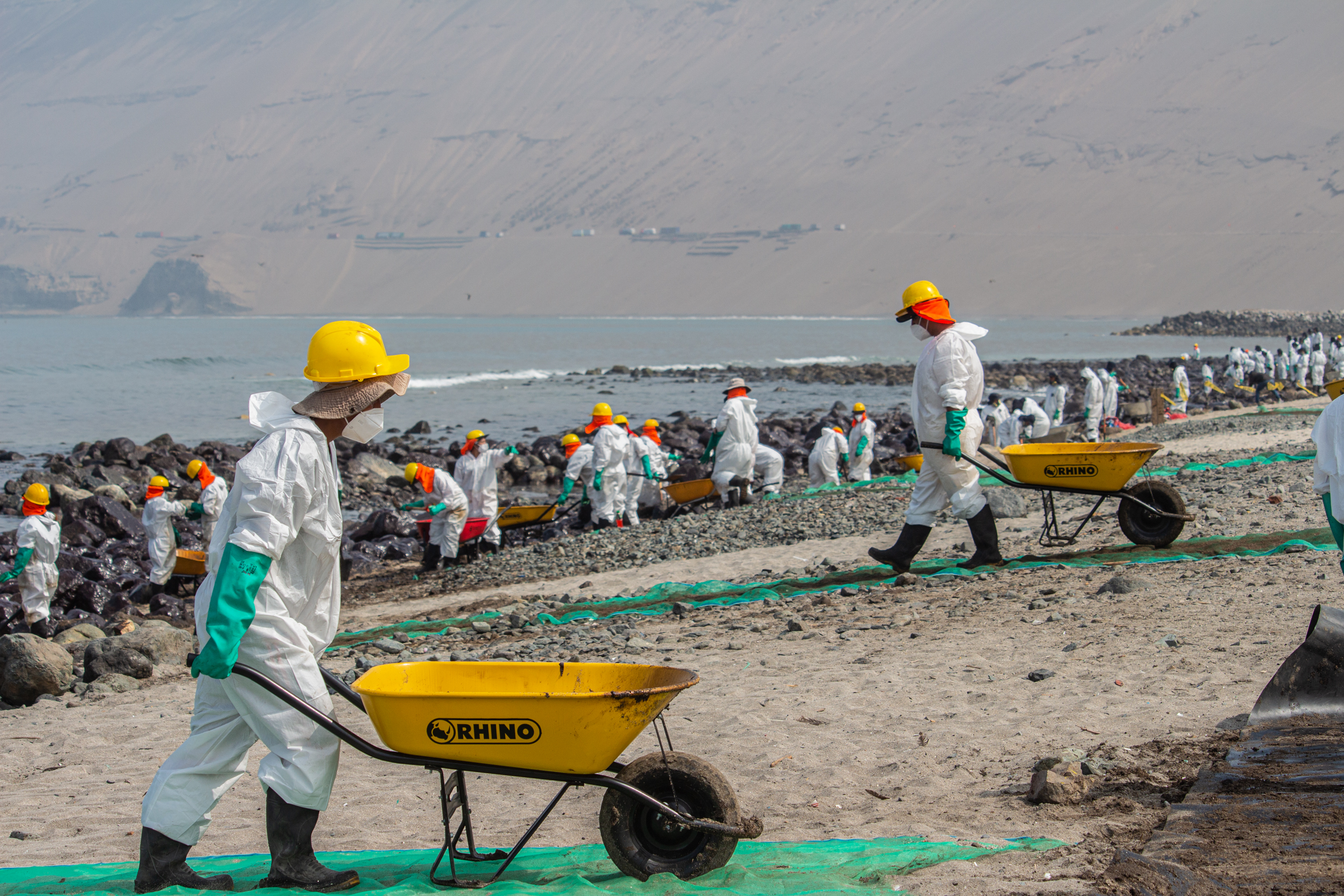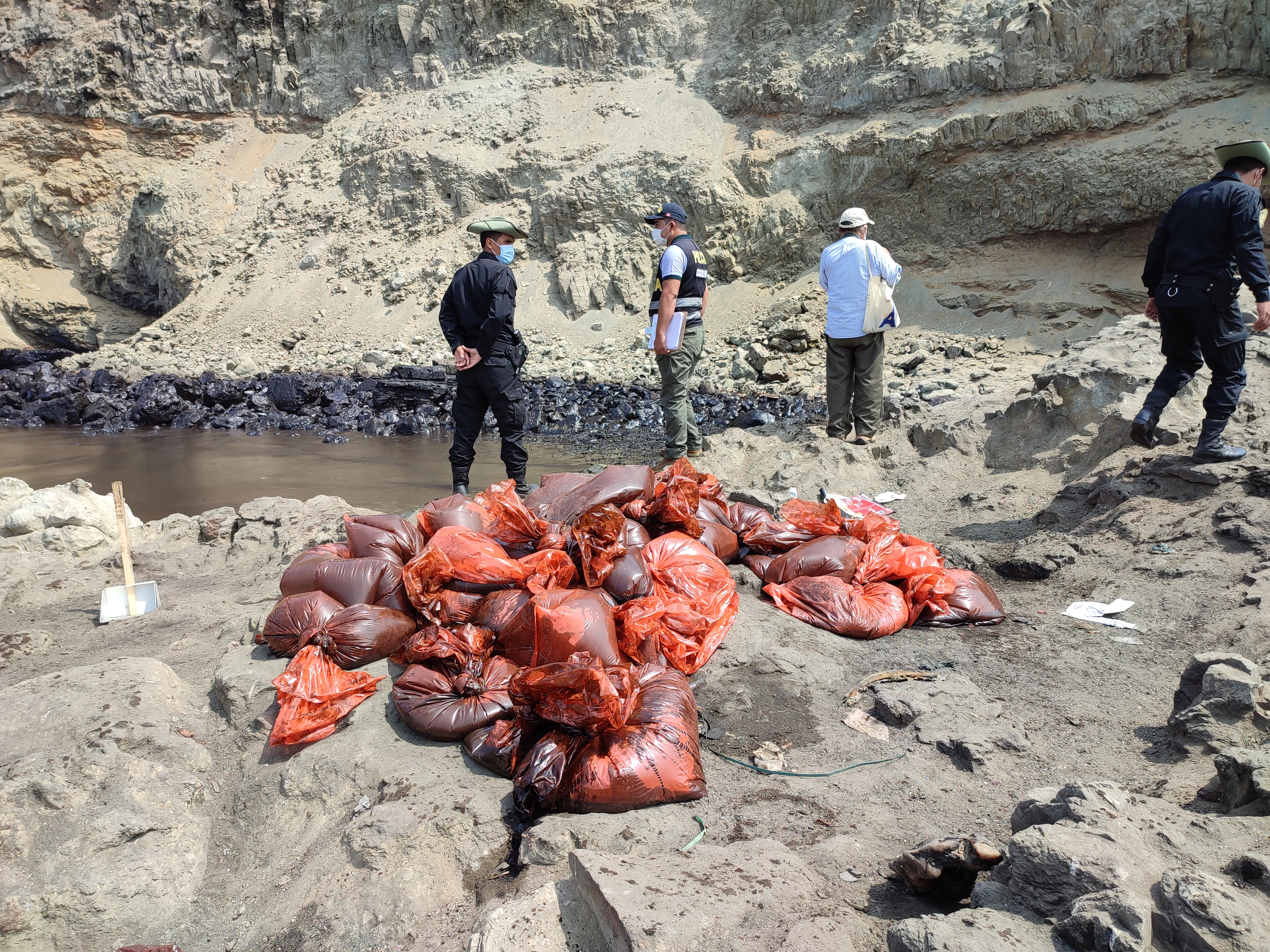
On January 15, 2022, thousands of barrels of crude oil spilled from a refinery off the coast of Lima, Peru caused by strong waves triggered by the volcanic eruption in Tonga. Since then, the lives and livelihoods of thousands of small-scale, artisanal fishermen who rely on the fish they catch close to the shore for their income have been negatively impacted.
This month's SSF Highlight spotlights Juan Carlos Sueiro, Fisheries Director at Oceana Peru, who has been involved with providing support to the coastal communities affected by the oil spill.

What kind of support has Oceana’s team provided coastal communities in Peru?
Support with advocacy to modify and/or create regulations for fisheries sustainability and information and scientific support socio-economic evidence
What types of challenges are coastal communities experiencing as a result of the oil spill? How is the oil spill affecting the livelihoods of these communities?
Those affected include artisanal fishers and people involved in related activities in landing and transport, mainly to Lima. The most affected are coastal fishers, both those who fish from boats and from the shore and they carry out this activity along the entire Peruvian coast. The oil spill has affected the beaches in 5 districts. This expanse of coast measures 30 km (the coast is uneven, we have used a straight line measurement).
There is a coastal fishing area that is difficult to reach in order to remove the oil accumulated on rocks and very small beaches. A large body of sand and rock, 15 km in length, restricts access to this beach. However, the waters in front of this body are used by fishers. This area will be the most severely impacted in the long term.
At Oceana, we have estimated the "beach price" value of the Ancon and Chancay fisheries.
REPSOL has agreed to pay up to 3,000 soles to each fisher as the first payment of compensation, although the final value of compensation has not yet been defined, nearly two months after the spill.

Others affected are local providers of services to summer visitors (tourism). Less is known about how many they are or the economic damage they have suffered as they have no presence in the media. It's estimated that roughly the same number of local providers and artisanal fisherfolk are affected.
There are also impacts on the ecosystems and wildlife in the area including protected islands and islets, cliffs, and rocky and sandy beaches. These areas sustain a high level of fish diversity, as well as birds and marine mammals.
The spill occurred at the beginning of the high season for these economic activities (fishing and tourism), but the severity of the environmental damage has not yet been fully assessed. An evaluation must be made for each impacted species regarding their stage of life at the time of the spill and the attendant vulnerability (e.g., reproduction, molting, etc.).
What are your concerns about the long-term effects of the oil spill?
Some experts involved in monitoring spills in other places report traces of oil several years after the spills they monitor have already occurred.
What type of support would you like to see from the government?
The Peruvian government should provide information to those affected by the spill about their options, about the roles and responsibilities of diverse state actors, and the responsibility of the company as well as emergency aid.
What do you think the government’s role is in this emergency?
The state response was slow and uncoordinated and little emergency support was provided to fisherfolk. In addition, information was not provided to clarify that emergency support is not in lieu of economic compensation. The Peruvian environmental system must be reviewed; it does not work - either to foresee damage or to act once damage has occurred.
|
Image

|
Image

|
Thank you to Juan Carlos Sueiro and Rafael Tapia at Oceana Peru for their contributions to this month's SSF Highlight.
This article is part of the SSF Highlights series of articles published regularly to the SSF Hub. To read previous SSF Highlights, follow this link.
